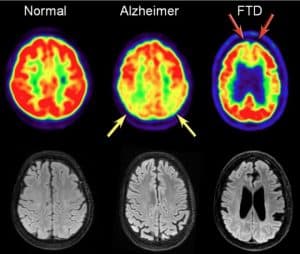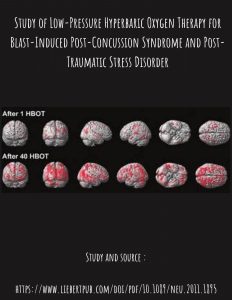
Having seen yet another story regarding a former professional footballer Gordon McQueen now struggling with Dementia linked to his playing career, added to other high profile stories from other elite sports players.
The knee jerk reaction is to ban heading the ball in football, tackles above the waist in Rugby, numerous restrictions in Boxing especially around the wearing of head guards in the amateur competitions.
These measures not only make the sport more sterile, but increasingly more difficult to enforce.
What if there was another way to prevent head injuries?
Prevention
Research has shown that measures taken to precondition the brain, prevents serious head injuries in the same way conditioning training for the body helps to prevent injuries on the pitch on in the ring.
Utilising the benefits of Hyperbaric Oxygen Therapy pre season as part of the conditioning programme could provide vital protection.
Obviously, the other benefits of HBOT if used as part of the conditioning programme will see increased endurance, improved performance, faster decision making with greater cognitive behaviour to list just a few.
Preconditioning the brain with Hyperbaric Oxygen Therapy before Stroke/TBI to reduce damage
Management
Following any head injury or suspected head injury sustained during playing/training, having a consistent response by way of having a minimum HBOT protocol. Would effectively manage and repair any damage caused.
Hyperbaric Oxygen Therapy for persistent Post Concussion
Repair
Regardless of how old the injury is or whether it is showing signs of Dementia, there is still good solid evidence that HBOT can help to repair the damage caused.
Hyperbaric Oxygen Therapy for Sports related TBI
Oxygen Wellbeing
We would like to propose the following structured approach to not only preventing Head Injuries, but also management and repair of potential and existing head injuries.
Preconditioning – 5 x 60min sessions
Management – 10/40 x 60min sessions dependant on severity of injury
Repair – 40 x 60min sessions

Accessibility
Owing to the Chambers we use, it is possible to provide on-site at any training venue or in the relaxing environment of our clinics.
Chambers
We use chambers provided by Henshaw, one of the leading Hyperbaric Chamber suppliers in the U.K.
All of our chambers operate at Mild Hyperbaric Oxygen pressure and do not use pure oxygen, making them extremely safe to use.
These chambers are easy to use and are in regular use in clients homes, evidenced by the purchases made by Premiership footballers.
We are extremely keen to provide an alternative and protection for those involved in contact sport and would welcome having the opportunity to demonstrate the fantastic benefits HBOT provides.
Please get in touch and help us to make a difference.
Concussion
What is Concussion
A concussion is a mild traumatic brain injury (TBI) which can occur following an impact to your head or during a whiplash type injury that causes the head and brain to shake quickly back and forth.
Common causes of concussion are falls, road traffic accidents, assaults and sporting injuries.
Concussion or TBI can be broken down into a chain of events:
What are the symptoms of Concussion
Whilst in most cases the symptoms will resolve themselves in a few days or weeks, it is important to be aware of the warning signs. Post-concussion syndrome symptoms may continue to occur following the mild TBI or concussion.
Signs and symptoms to look out for:
If you experience any of these symptoms, please seek medical advice or visit your local Emergency Department and if possible attend with another responsible adult.
Some Do’s and Don’ts
Symptoms of Post-Concussion Syndrome (PCS)
Whilst these symptoms are not as severe as the warning signs, they can be very debilitating and frustrating as the effects may be subtle. If they persist for more than two weeks, it is advisable to seek medical advice.
Recovery from Concussion
Generally the vast majority of people who experience a mild head injury will make a full recovery after 3 – 4 months. In the rare occasion, recovery for some will not be as straightforward.
Steps you can take to improve your chances of making a full recovery.
Follow the guidelines listed in the DO’s section.
There is also extensive research into the use of Hyperbaric Oxygen Therapy, playing a major role in helping to repair the damaged areas of the brain by increasing the levels of oxygen being absorbed by the body.
Oxygenated plasma is capable of reaching the smaller areas of the brain and helping to regenerate cells. Some of the major Sporting Events now provide access to Hyperbaric Chambers to provide immediate therapy which helps to reduce inflammation in the damaged areas, along with increasing oxygen levels to areas which have been damaged and starved of oxygen.
For more information on how Hyperbaric Oxygen Therapy can play a major role in the recovery from mild TBI’s and concussion, please visit:
For more information around NHS Guidelines, please visit:
https://www.nhs.uk/conditions/head-injury-and-concussion/
